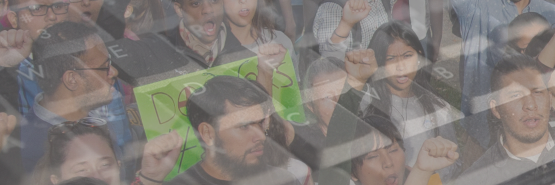On February 23, 2020, a man named Ahmaud Arbery went for a jog near his home in Brunswick, Georgia. He never returned. Three white men named Gregory McMichael, Travis McMichael, and William Bryan Jr. chased him in trucks, surrounded him and then shot him to death.
They are now on trial and are claiming self-defense…just like Kyle Rittenhouse in Wisconsin. As I write, the McMichael et al defense is just starting its presentation but we can predict what its case will be: the defendants will insist that their neighborhood was under siege by criminals and that they mistook Arbery for one of them and all they were doing was their duty — to stop him and find out what he was doing there and maybe call the cops on him.
(Update: On Nov. 23, 2021, six days after this post was published, the three men were convicted of killing Ahmaud Arbery. That is justice but it doesn’t alter anything expressed in this post.)
What he was doing was obvious. He was jogging through a neighborhood of the United States which is an absolute protected right of every citizen. They chased, surrounded and then shot him which is a crime in any part of this country. They did it, as they openly admit, because he was black and they assumed he was involved in criminal activity.
These white men are on video killing this black man who was unarmed, not bothering anyone and trying to get away from them as they cornered him with their vehicles like a raging animal.
That these guys were arrested months after the murder and only after video tape of the incident was published tells you something. That a defense lawyer brazenly rose in court to get the judge to take action against “black ministers” (like Al Sharpton and Jesse Jackson) coming in and sitting with the family repeats that something. “We don’t want any more ministers”, he explained. That the trial jury of 18 includes only one black person…well…heck…that there is even a trial in this case repeats the something over and over.
This is racism at its most obvious and the “something” is that the law lets racism function. In a truly just society, racism would be a crime. Sure you have freedom of speech and thought but you can’t exercise those freedoms to attack the freedom of other people and racism does that. It’s not just attitude; it has never been. If all we contended with were some dumb attitudes by some white people, there would be no problem.
But racism affects people’s lives every day. It defines actions people take, requirements people face and the governing of people’s lives. It restricts people, harms people and, as in this case, kills people. It’s not an attitude; it’s a social sickness based on the false idea of “race” and born of the need to protect domestic production and facilitate imperialism. It doesn’t reside in the consciousness of some people; it floats permanently and consistently through the wind of all social interaction. You can’t escape it; it is the life-long harm people of color must endure.
While we’re watching this Georgia trial, the trial over the killing of motorist Daunte Wright will soon begin. Last April, Wright was stopped by police officers accompanied by a white training officer named Kim Potter. The stop became hostile and Wright tried to get back into his car when Potter shot him. She says she meant to use her laser gun and mistakenly shot her fire-arm instead. He died on that street that afternoon. He was 20 years old.
I lump these cases together because they have a similarity: the judgement of the killers was clearly impaired. The Arbery murderers saw a black man jogging and assumed that he was robbing area houses. The officer saw a black man in a car and assumed he was a major danger; Daunte Wright was a thin guy and three officers didn’t need a taser to control him but white people often imagine menace and size when someone’s black.
That’s the thing that can’t be litigated in a court. Courts take up individual actions and racism isn’t individual; it’s cultural and systemic. The law doesn’t acknowledge that and without that acknowledgement and the necessary adjustments that would flow from it, you can’t have a fair trial. You can’t have justice. In a society built on racism, there is no way to isolate any institution from it.
Of course, there’s no automatic fix to the problem of racist courts because they are a reflection and institution of the greater society. The fix is, as always, in fixing the society. But there’s a way to advance the societal fix by pressuring courts to do consider racism in making determinations, to make sure juries are really representative and to take background and life into consideration when charging and sentencing.
That won’t fix the problem but it might make more people conscious of it and that consciousness is really the key to really tackling the problem by changing this society. So start with that.
